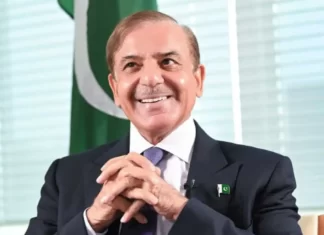ISLAMABAD: Pakistan and the International Monetary Fund (IMF) are to start policy-level discussions this week, starting from Monday.
The IMF team which arrived in Islamabad on November 6, has so far held technical discussions with Pakistan’s authorities.
According to sources, Asad Umar will head the policy-level discussions from Pakistan’s side. The talks between the IMF and Pakistan will continue till November 20.
The volume of the loan would be finalised in the policy level discussions between the two parties. The amount of loan being sought from the IMF has not been determined yet.
“The amount of aid sought from the IMF has not yet been determined and is being worked on,” Asad Umar said in a recent media briefing in Karachi.
However, insiders claim the government has asked for $6 billion to $7 billion from the international lender.
According to sources in the government, during this week’s scheduled meetings, the government will also brief the visiting delegation about Pakistan’s debt especially related to CPEC.
In the aftermath of Pakistan’s greylisting by the international anti money-laundering watchdog, the Financial Action Task Force (FATF), Pakistan will also have to present a complete strategy on anti-money laundering.
According to reliable sources at the Ministry of Finance, the IMF is now likely to visit the National Accountability Bureau (NAB) to analyse the anti corruption framework this week. It is also to discuss technicalities in the money laundering and governance issues.
Apart from analysing the shared data, the IMF team would also hold follow-up meetings at the Ministry of Finance regarding macroeconomic issues and power sector policies.
Technical Discussions End
As the visiting team of the International Monetary Fund (IMF) held its meetings with regulatory authorities and power companies, it discussed the budget, macroeconomic framework, and infrastructure projects of the China Pakistan Economic Corridor (CPEC).
As per sources, the visiting members of the international lender this week may also hold meetings with Chinese officials from the Chinese embassy in Islamabad to discuss CPEC projects and expected financial assistance for Pakistan.
The finance minister Asad Umar has already announced that his government would share data related to CPEC with the IMF as there was nothing to hide in the multibillion dollar project. However, sources at the ministry claim that the government would avoid sharing the framework agreement signed between Pakistan and China with the IMF.
After the completion of the visit from IMF’s technical team, another team of the lender would also visit Pakistan for policy level talks. The new team would finalise the volume of loans and conditions of the new borrowing programme.
During the technical level talks held last week, the IMF has reportedly emphasised on Pakistan to take measures to enhance its exports and privatise the loss-making public sector entities (PSEs). During the meetings held so far, officials in the ministry of finance, ministry of commerce, and the Federal Board of Revenue (FBR) have briefed the Fund.
Pakistan has reportedly informed the IMF delegation that the government has finalised its privatisation plan. Under the plan, the government would privatise SME Bank Ltd, First Women Bank Ltd, Jinnah Convention Centre, Islamabad, Lakhra Coal Development Company and Services International Hotel, Lahore.
Similarly, the government has also approved the privatisation of the newly-established 1233 MW Balloki Power Plant and the 1230MW Haveli Bahadur Shah Power Plant.
The Fund was informed that the government has delisted Pakistan Steel Mills (PSM), Pakistan International Airlines (PIA), Pakistan Railways (PR), Utility Stores Corporation (USC), National Highway Authority (NHA) and the Civil Aviation Authority (CAA) from the privatisation list. The government has informed the IMF that it would establish Pakistan Sovereign Fund or Wealth Fund to run the public sector entities (PSEs) including PIA, PSM and others.
Apart from the volume of loan, the IMF would also present its conditions for the bailout package for Pakistan during the upcoming talks. The IMF may ask Pakistani authorities to broaden the tax base of the country, besides increasing power tariff and depreciating the Rupee.
After the completion of technical and policy level talks, Pakistan and the IMF mission will sign agreements on the memorandum of economic and financial policies and then sign the letter of intent to secure a 36-month extended fund facility loan.
It may be recalled here Pakistan is in need of an estimated $12 billion to support its external account sector for the current fiscal year of 2018/19. The country’s foreign reserves have plummeted 42 per cent since January to around $8 billion, barely sufficient to cover two months of imports.
























